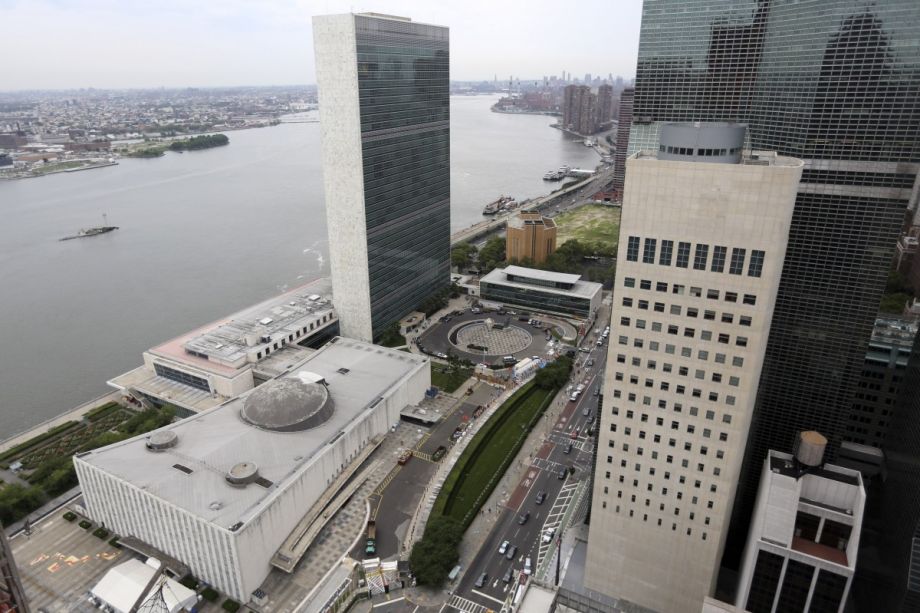Getting One Step Closer to a Global Plan for Sustainable Urbanization

After negotiations at UN headquarters in New York, there's consensus on the final draft of the New Urban Agenda. (AP Photo/Mary Altaffer)
Over the weekend, representatives from governments around the world achieved consensus on a United Nations document that can serve as a guide to sustainable urbanization for decades to come. They reached agreement on the final draft of what’s called the New Urban Agenda after 38 hours of nonstop negotiations at UN headquarters in New York, Citiscope reports. The nonbinding New Urban Agenda, which could influence everything from policymaking to design in cities, is now set to be formally adopted at the UN’s Habitat III conference in Quito, Ecuador, in October.
Talks in Surabaya, Indonesia, in July failed to deliver an agreement, partly because of disagreements over some language and implementation. The latter will now be left for the UN General Assembly to decide, but on language changes, many advocates for including the social-justice-driven phrase “the right to the city” are content with the final compromise, according to Citiscope reporting. Here’s the final language:
We share a vision of cities for all, referring to the equal use and enjoyment of cities and human settlements, seeking to promote inclusivity and ensure that all inhabitants, of present and future generations, without discrimination of any kind, are able to inhabit and produce just, safe, healthy, accessible, affordable, resilient, and sustainable cities and human settlements, to foster prosperity and quality of life for all. We note the efforts of some national and local governments to enshrine this vision, referred to as right to the city, in their legislations, political declarations and charters.
At the Surabaya gathering, Next City talked to many stakeholders about “the right to the city” and its importance. Here’s what Gloria Solorzana Espinosa, a street vendor from Lima who’s part of the National Self-Employed Workers Network in Peru, said.
Post-Quito, implementation will be key. As George W. McCarthy, president and CEO of the Lincoln Institute of Land Policy, wrote recently on Devex, tracking the progress of the New Urban Agenda will not be as straightforward as measuring carbon emissions after the Paris climate change agreements, for example. How to pay for this vision of just, sustainable cities and monitoring urban growth are primary factors in the puzzle. In Surabaya, before the final draft was settled on, Clayton Lane, of the Institute for Transportation & Development Policy, spoke about the challenges of implementation.
Find all of Next City’s reporting on Habitat III here and watch conversations about the New Urban Agenda here.
Editor's Note: The globalist "urban agenda" is a freedom sapping plan for social control cooked up by academics, politicians and international business elites. While the idealistic goals may sound good, it actually robs the democratic rights of many in favor of a few.
No comments:
Post a Comment